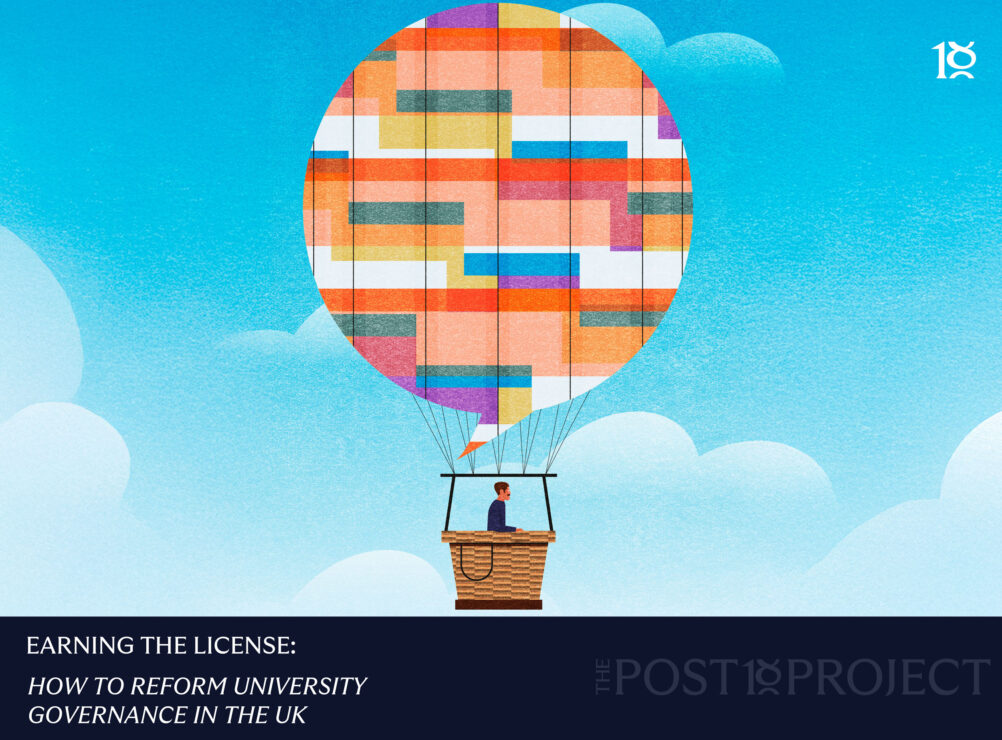In all the domestic debates about Brexit, immigration and the (financial) “value” of international students, it’s all too easy to forget why “global” education matters.
Growing up in a fusion of both Western and Oriental worlds, Macau being a former Portuguese colony, I have always been surrounded by diverse communities and seen the benefits that a mix of cultures can bring.
It was the best way to experience a multicultural and diverse society, uniting citizens from all over the world, where we learned from one another and our different experiences. Our diverse cultures and backgrounds taught us to communicate with the world, opened our minds and enriched us with global competence.
This learning experience continued during my time in higher education at Middlesex where I shared lectures, libraries and social spaces with students from all corners of the globe. We were able to bring different perspectives to discussions in classes and lectures and learn from each other’s experiences.
We all presented different solutions to problems and celebrated our different cultures which enhanced my overall experience of university by creating a welcoming attitude on campus.
A global education agenda
This is why it is so important that our sector and government develops and maintains a vision of global education. It is more than just tackling xenophobia, it is how we prepare individuals to be open minded with the world and give them the skills to adapt to almost any situation.
We often tell students to not judge a book by its cover but the best way to teach them this lesson is to allow them to read those books – and the same goes for judging people from different backgrounds.
Our education is only rich if it is diverse. I’m not just talking about diversifying the textbooks (even though this is important), I’m also referring to teachers from different backgrounds with unique sets of skills that will be passed on to other teachers, colleagues and their students.
This is why we need a fair and accessible immigration system in the UK that not only encourages international students to come to this country, but also gives institutions the opportunities to recruit staff from abroad and bring in world-leading educators to broaden the horizons of their networks.
As it stands, our immigration system does not reflect the best that the UK has to offer. Instead, it is too often challenging to engage with, unwelcoming, and unfair. But significant work has been done by the sector to show the way on inward student visas and to ensure that UK students, even those with particular barriers, can still engage in education overseas. These placements, and internationalisation of our education system as a whole, enriches all of our experience.
Our immigration system should be something to be proud of. It should be a positive representation of the welcoming culture and attitudes of the United Kingdom rather than something to be grappled with and to manoeuvre around. This may seem like an idealistic vision in the current political context but it is something that we should strive towards and the general election provides a chance to move towards this goal.
Ins and outs
Global education can’t just be about international students coming to the UK. It also, for example, involves enabling UK students to study abroad and gain experience of living in different environments.
The benefits of outward student mobility are much heralded by those within the sector, but we need to do more to ensure that these benefits are more widely known. We also need to shout more about the chances that the Erasmus+ scheme gives to students in further education to undertake short study and work placements abroad, that are more closely aligned with the typical teaching schedule than other study abroad programmes. It would be a tragedy if the UK were to be cut off from Erasmus+ and opportunities for students to study abroad were scrapped.
UUKi’s Go International campaign has been very successful in equitizing global education and creating opportunities for students from diverse backgrounds to be able to study abroad. This success must be built upon. Global education is no use if it is not accessible for all and this is especially pertinent when it comes to outward student mobility. Government departments and these sector initiatives need to engage with disabled students, black students, women and LGBT+ students to understand their unique needs in order to study abroad.
It is also essential that the UK remains open for international collaboration. In the 21st century, research does not recognise borders. Be that scientific projects to develop scalpels that tell surgeons immediately whether the tissue they are cutting is cancerous or not, batteries that will reduce the time needed to charge electric cars to just minutes or historical research projects exploring how European Renaissance history is perceived and remembered differently across Europe through the lens of the Jagiellonian dynasty.
Bigger than Brexit
While Brexit threatens all of these – they are all funded by ERC grants – the problems that need solving are a lot bigger than this single issue. None of the projects could have been successful without researchers from a host of different nations working together. Our technologies have developed to enable this and our policies must catch up.
The next government needs to demonstrate its commitment to R&D development by committing to maintain EU funding for higher education post-Brexit, and including association to EU programmes such as Horizon 2020 and Horizon Europe in any Brexit deal.
As NUS’ Vice President for union development, I haven’t forgotten that our students’ unions must be at the forefront of a truly global experience for all of our students. Unions must be a key part of the programme for every student, from the start. And it starts with international clubs and societies who are led by students from all over the globe, creating global communities on our campuses. Our approach to student leadership and co-production of education is a strength that students who leave the UK and study elsewhere should take with them.
Students’ unions from across the country work hard to deliver the best possible experience for international students, as they understand the value of cultural competence they provide to their student communities, as well as a sense of inclusion and a campus who is not afraid to be open to the world. I have always believed that what makes an educational experience great for an international student is an SU that understands and values exactly that, an SU that is funded and prepared to champion them with an internationalised view and approach to the world. I should know this because I was one of them.
Global education is the way forward to a better and more progressive world. This election gives us the opportunity to embrace the opportunities that it presents and create policy that can enable both students and institutions to engage with their international counterparts. We need a government that will make this happen and students will be campaigning for this right up to and beyond polling day.













